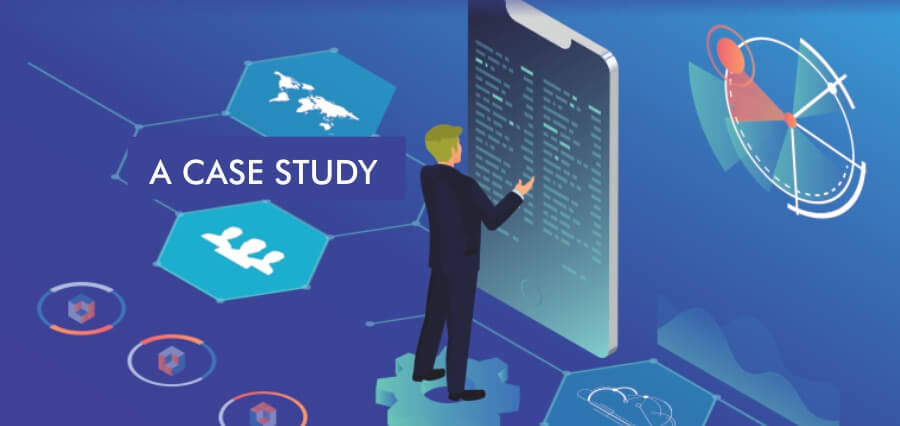In the ever-evolving digital landscape, WhatsApp has emerged as a transformative force, revolutionizing communication, information sharing, and business practices. Its user-friendly interface, robust functionality, and widespread adoption have made it an indispensable tool for individuals and organizations alike. This paper explores WhatsApp’s multifaceted contributions to digital transformation through a series of compelling case studies.
As we delve into these case studies, we will uncover the quantifiable benefits and positive outcomes achieved by leveraging WhatsApp’s capabilities. We will also analyze the key features and functionality that have fueled its success, examining how they enhance communication, collaboration, and customer engagement.
Introduction to WhatsApp’s Contribution to Digital Transformation
WhatsApp has emerged as a pivotal force in the digital transformation landscape. It has revolutionized communication and information sharing, enabling seamless connectivity and instant access to information. Beyond personal interactions, WhatsApp has significantly impacted business practices and customer engagement, driving innovation and efficiency across various sectors.
Communication and Information Sharing
WhatsApp’s ubiquitous presence has made it a primary channel for communication, fostering real-time interactions and bridging geographical boundaries. It facilitates instant messaging, voice and video calls, and media sharing, allowing individuals and businesses to stay connected effortlessly. Its end-to-end encryption ensures secure and private communication, enhancing trust and reliability.
Case Studies of WhatsApp’s Impact
WhatsApp’s transformative effects are evident in various industries and sectors, empowering businesses and individuals alike. Here are a few case studies that showcase the tangible benefits and positive outcomes achieved through WhatsApp’s platform.
E-commerce and Retail
WhatsApp has revolutionized e-commerce by providing a seamless and personalized shopping experience. Small businesses leverage WhatsApp’s chat feature to connect with customers, showcase products, and facilitate orders. For instance, in India, WhatsApp Business has enabled over 5 million small businesses to grow their customer base and increase sales.
Healthcare
WhatsApp has played a crucial role in improving healthcare accessibility and delivery. Healthcare providers utilize WhatsApp to communicate with patients, provide remote consultations, and share vital information. In Rwanda, WhatsApp-based health services have increased access to healthcare for over 5 million people, particularly in rural areas.
Education
WhatsApp has become a valuable tool for educators and students. Teachers use WhatsApp groups to share study materials, engage in discussions, and provide feedback. In South Africa, WhatsApp has helped improve educational outcomes by facilitating peer-to-peer learning and access to resources for disadvantaged students.
Financial Inclusion
WhatsApp has contributed to financial inclusion by providing a platform for mobile banking and money transfer services. In Brazil, WhatsApp has partnered with Banco Central do Brasil to launch WhatsApp Pay, which has enabled millions of unbanked individuals to access financial services.
Community Engagement
WhatsApp has fostered community engagement by providing a platform for people to connect, share information, and mobilize for social causes. In the Philippines, WhatsApp has been used to organize community clean-ups, provide disaster relief, and raise awareness about social issues.
Key Features and Functionality of WhatsApp

WhatsApp’s remarkable success can be attributed to its carefully crafted feature set. Its user-friendly interface, robust encryption, and comprehensive multimedia capabilities have transformed communication and collaboration.One of WhatsApp’s key strengths lies in its intuitive user interface. The app’s design is clean and uncluttered, making it easy for users of all ages and technical backgrounds to navigate.
Essential features are readily accessible, allowing for quick and seamless communication.WhatsApp’s unwavering commitment to privacy has earned it a reputation as one of the most secure messaging platforms. Its end-to-end encryption ensures that messages remain confidential between the sender and recipient, protecting them from unauthorized access.
This feature has made WhatsApp particularly popular in regions where privacy concerns are prevalent.Multimedia capabilities are another key aspect of WhatsApp’s success. Users can effortlessly share images, videos, and documents, enhancing the richness and expressiveness of their communication. This functionality has proven invaluable for individuals and businesses alike, facilitating the exchange of important information and ideas.
Encryption
WhatsApp’s end-to-end encryption is based on the Signal Protocol, widely regarded as one of the most robust encryption protocols available. This technology ensures that messages are encrypted on the sender’s device and decrypted only on the recipient’s device. This impenetrable layer of security protects messages from interception by third parties, including governments and hackers.
Multimedia Capabilities
WhatsApp’s multimedia capabilities extend beyond simple image and video sharing. Users can also send GIFs, stickers, and voice notes, adding a touch of fun and personalization to their conversations. Additionally, WhatsApp’s document sharing feature allows users to exchange files of various formats, including PDFs, spreadsheets, and presentations.
This functionality has transformed WhatsApp into a versatile tool for collaboration and file sharing.
Challenges and Opportunities for WhatsApp

WhatsApp faces several challenges to its continued growth, including increasing competition from other messaging apps, regulatory scrutiny, and concerns about privacy and data security. However, the company also has opportunities for further innovation and expansion, such as expanding into new markets, developing new features, and integrating with other platforms.
Competition
WhatsApp faces competition from other messaging apps such as Telegram, Signal, and iMessage. These apps offer similar features to WhatsApp, and some even offer additional features such as end-to-end encryption by default or the ability to send self-destructing messages. To stay ahead of the competition, WhatsApp will need to continue to innovate and add new features that users find valuable.
Regulatory Scrutiny
WhatsApp has come under increasing regulatory scrutiny in recent years, particularly in Europe. The company has been fined for violating data protection laws and has been criticized for its handling of user data. WhatsApp will need to continue to invest in compliance and data protection measures to avoid further regulatory scrutiny.
Privacy and Data Security
WhatsApp has been criticized for its handling of user data, particularly its decision to share data with its parent company, Facebook. The company has since made changes to its privacy policy, but concerns about privacy and data security remain. WhatsApp will need to continue to address these concerns to maintain user trust.
Opportunities
Despite the challenges, WhatsApp also has opportunities for further innovation and expansion. The company can expand into new markets, such as developing countries where smartphone penetration is growing rapidly. WhatsApp can also develop new features, such as the ability to make payments or book appointments.
Additionally, WhatsApp can integrate with other platforms, such as e-commerce platforms or customer service platforms.
Future of WhatsApp
The future of WhatsApp is uncertain. The company faces challenges from competition, regulatory scrutiny, and concerns about privacy and data security. However, WhatsApp also has opportunities for further innovation and expansion. The company will need to continue to address these challenges and seize these opportunities to ensure its long-term success.
Final Conclusion
In conclusion, WhatsApp has played a pivotal role in driving digital transformation across a diverse range of industries and sectors. Its user-centric design, innovative features, and vast reach have empowered individuals and businesses alike to connect, collaborate, and innovate in unprecedented ways.
As the digital landscape continues to evolve, WhatsApp is poised to remain a key player, offering new opportunities for growth and transformation.
Frequently Asked Questions
How does WhatsApp contribute to digital transformation in communication?
WhatsApp enables instant, low-cost, and secure communication, breaking down geographical barriers and facilitating real-time collaboration.
What are some key features of WhatsApp that drive its success?
WhatsApp’s user-friendly interface, end-to-end encryption, multimedia capabilities, and group chat functionality enhance communication and collaboration.
How has WhatsApp impacted business practices?
WhatsApp has streamlined customer engagement, improved supply chain management, and enabled remote work, increasing efficiency and productivity.



